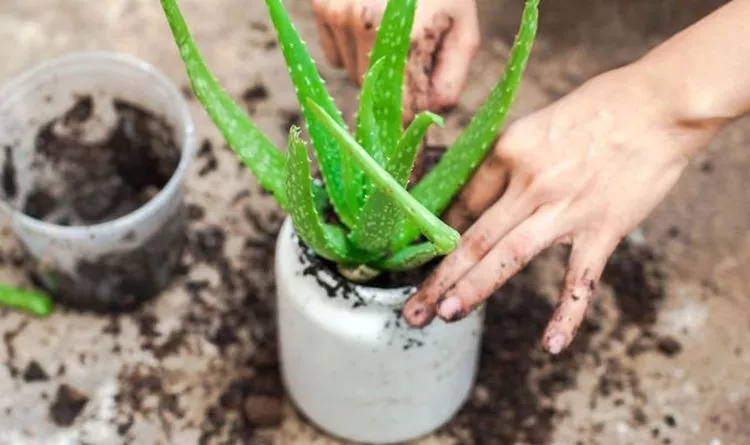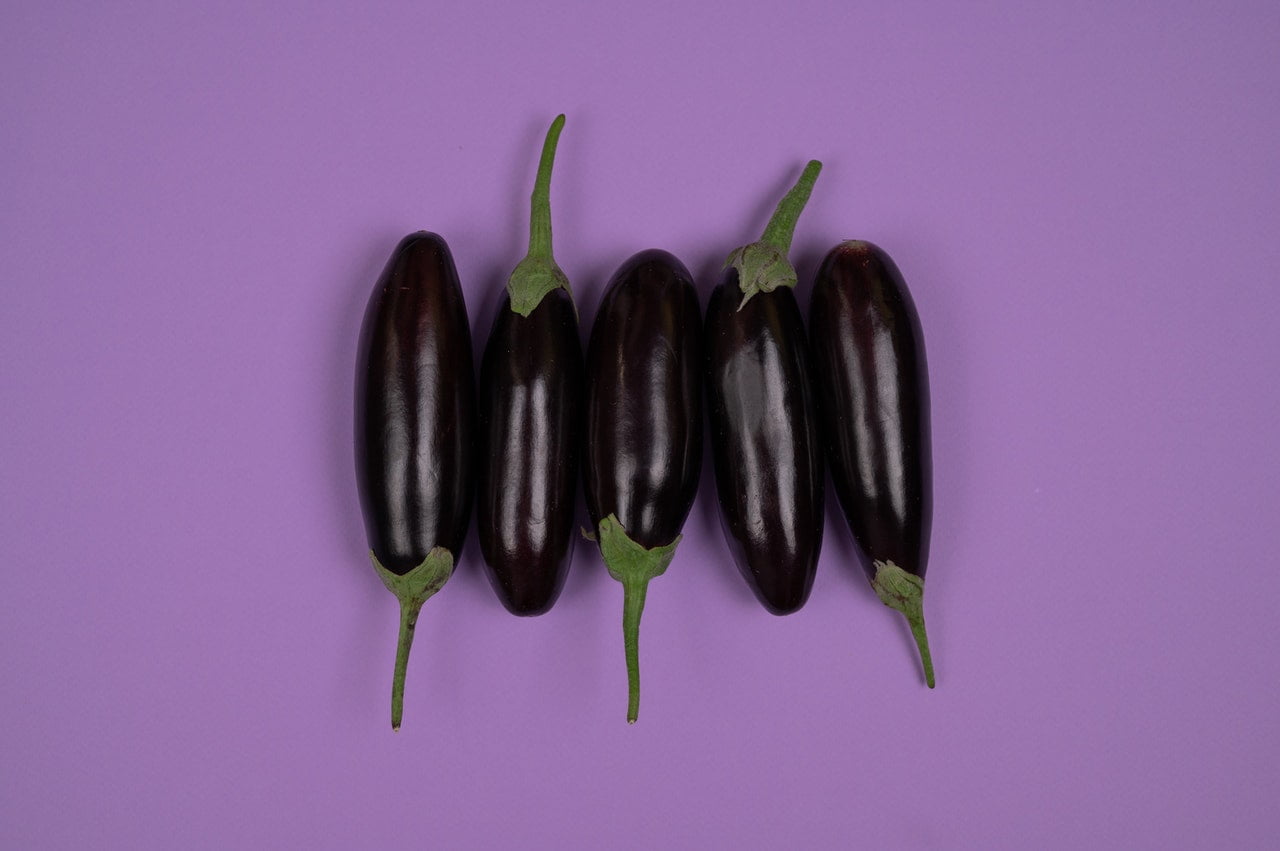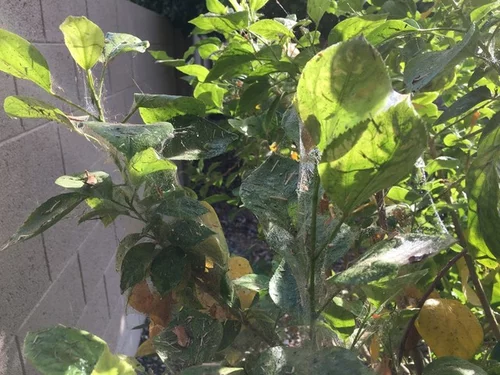Aphids are ubiquitous pests that attack lemon trees for their juicy sap. The insects are relatively small in size but they can cause considerable damage when left to multiply unchecked.
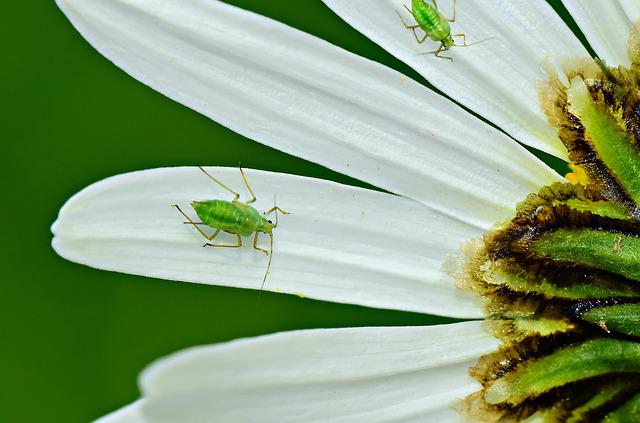
Add 1 teaspoon of neem oil and one teaspoon of liquid dish soap into 1 gallon of water. Stir the mixture well into a milky solution. Spray the lemon trees infested with aphids covering all parts including the undersides of the leaves to kill all the aphids. Repeat this treatment weekly until you eliminate the pests.
Aphids can cause various citrus tree diseases like secondary infections from fungi and diseases that could capitalize on the reduced immunity to cause damage to your trees.
Signs of aphids on lemon trees
Aphid attacks on lemon trees are more prevalent during the spring and summer months. The insects are more likely to attack young, shaded, and soft sections of your lemon tree such as the underside of leaves, twigs, etc.
Aphids can cause substantial damage to a plant’s foliage, fruit, and stems. The insects suck on sap leaving your lemon trees vulnerable to subsequent attacks from other disease-causing pathogens.
Here are some common signs of aphid attacks on your lemon trees
Curling and yellowing leaves
Aphids are more likely to attack lemon tree leaves because of their soft tissue and highly interconnected vein system. Leaves also play a primary role in glucose production; a major food source for aphids and other sap-sucking insects.
You can check for aphid infestations on your leaves by inspecting the underside of individual foliage including the leaf stalks and twigs using a magnifying glass. Aphids appear as small colored specks that cling to leaf veins in small dense clusters
Continuous aphid infestations can cause damage to your trees causing lemon leaves to curl, shrivel and turn yellow. You may also experience premature leaf drops which can affect fruit production and additional aspects of your plant’s health.
Sticky Substance on Leaves and Twigs
Aphids secrete a sugary, sticky goo on leaves and twigs as a by-product of their feeding process. The presence of honeydew on your lemon tree could indicate an aphid problem on the plant.
Honeydew is rich in glucose and other essential nutrients for the plant. A large-scale aphid infestation causes the plant to lose vital nutrients and causes additional problems to the plant’s health. Affected leaves can continue to leak sap long after the aphid has left leaving the plant susceptible to viral and bacterial attacks.
A considerable amount of honeydew attracts insects such as Herder ants (Crematogaster) which farm the aphids for their honeydew. A plant with a notable ant population could be an indicator of an aphid presence within sections of the plant.
Presence of soot mold
Soot mold is a fungal infection that causes black, tar-like spreads to appear on your lemon tree leaves and fruits. The mold growth results from honeydew; a consequence of aphid attacks on your plant.
The presence of soot mold on sections of your plant could indicate an aphid presence on the lemon tree. Soot mold has a high spreading rate and can cause substantial damage to your plant’s leaves, and stem and affect fruit production. It also presents an undesirable aesthetic effect for ornamental lemon trees.
A proper way of dealing with soot mold involves controlling aphids and other sap-sucking insects from your lemon tree.
Other signs of aphids on lemon trees include:
- Presence of small white cask skins (exoskeletons) on the base of the plant
- Stunted shoot growth
- An increased presence of ladybugs and other predatory beetles
How to treat aphids on lemon trees
Aphids can cause considerable consequences for your lemon trees. It’s vital to control aphid populations as the insects can spread quickly within a short period.
You can opt for several treatment methods when dealing with aphids. The treatment methods are largely grouped into natural and chemical treatments.
Natural aphid control methods focus on organic and biological techniques to control the spread of aphids on your lemon trees while chemical treatments rely on synthetic and inorganic aphid control approaches.
Here’s how to treat aphids on lemon trees:
Natural Treatments
You can opt for several natural treatment methods when dealing with aphids on your lemon trees. An advantage of natural control measures relates to their effectiveness, impact on the environment, and ease of implementation.
Examples of common natural treatments for aphids include:
Apply a neem oil treatment
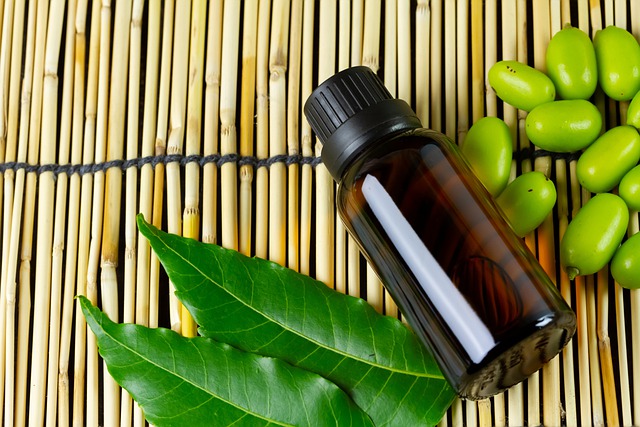
Neem oil is a highly effective organic solution to aphid attacks on your lemon trees. The oil works by suffocation where it clogs the insects’ spiracles inhibiting their access to air. The oil solution is relatively easy to prepare and is applicable in a DIY setup.
Preparation of a neem oil solution involves water, liquid soap, and neem oil as key ingredients. Liquid soap acts as an emulsifying agent when mixing oil and water.
Pour one teaspoon of neem oil (5mL) into a mixing container, add a teaspoon of liquid soap (5mL) and stir thoroughly. Pour one gallon of water into the mixture and stir continuously until the solution attains an even milky-white color.
Thoroughly spray your plant while paying attention to leaves, fruits, twigs, stems, and other sections vulnerable to aphid attacks. Neem oil evaporates quickly (about 45 minutes) so it might be best o spray the neem oil solution early in the morning or during late evenings.
It’s also best to check your neem oil concentration by conducting a small leaf test before spraying your plant. Excessively high concentrations of neem oil can harm your lemon tree leaves considerably. You might also have o repeat the activity about once a week to completely eradicate the pests.
Introduce natural predators to control aphids

Aphids are vulnerable to predators like ladybugs, hoverfly larvae, predatory midges, etc. You can use biological control measures to control aphid populations on your lemon trees without any adverse effects on the environment.
You can buy live ladybugs online or at recommended stores. On average the price averages about $21.99 for 1500 ladybugs (although prices may differ depending on season and location).
Using predation is more effective as a preventative measure as opposed to dealing with an aphid infestation.
Apply a strong water spray
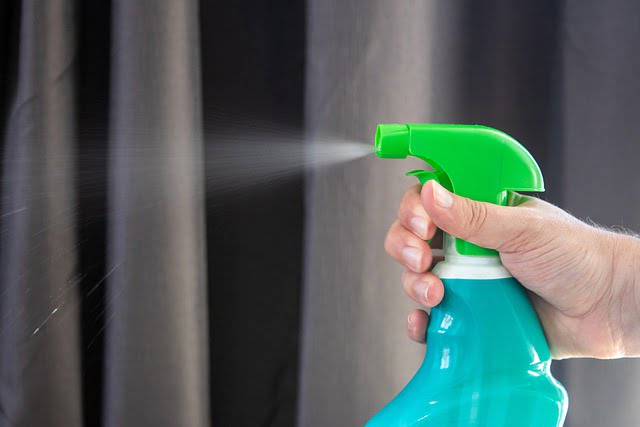
Regular strong water sprays can help control aphid populations on your lemon trees. Aphids loosely attach themselves to soft sections of your lemon tree. A strong surge of water can easily disentangle them from the plant and prevent further damage t your lemon tree.
For optimal aphid control, use water sprays along with insecticides or neem oil solutions.
Apply an insecticide to kill aphids
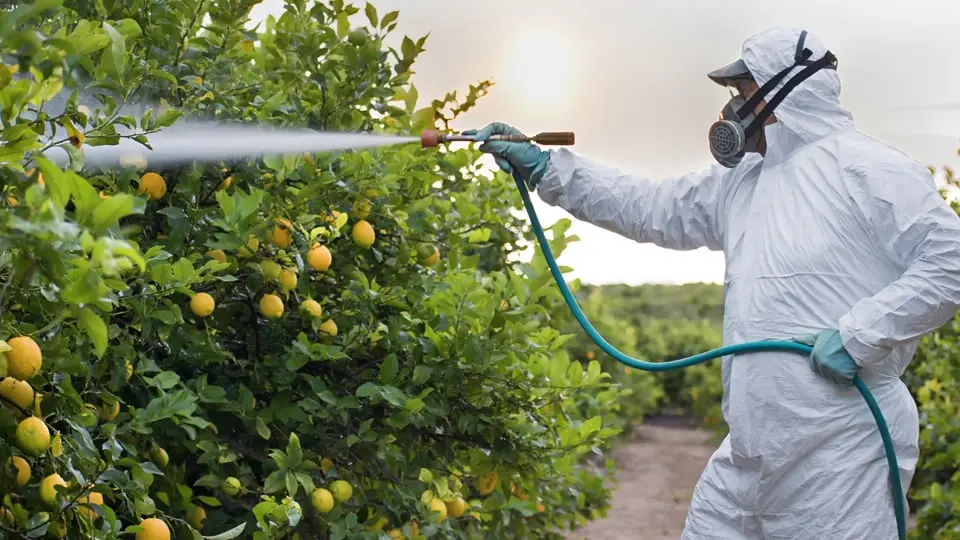
Chemical treatment measures involve using insecticides to control aphids (and the consequences of aphid activity, such as fungi and bacteria).
Use insecticides rich in cypermethrin, resmethrin, permethrin, cyfluthrin, and similar pyrethrin products as a synthetic control measure against aphids. Chemical treatment methods are useful when dealing with large aphid concentrations on a sizeable population of lemon trees.
However, some chemicals can have unintended consequences for the plant’s environment and It’s important to follow the manufacturer’s directions to ensure the product’s effectiveness.
Effects of aphids on lemon trees
Aphids can have degrading effects on lemon trees when left to reproduce and spread uninhibited. The insects can harm a tree’s fruit, leaves, flowers, and other essential section of your plant.
Aphids can contribute to the spread of harmful fungi and bacteria on your lemon trees. As aphids feed, they expose the plant’s phloem; making it easy for bacteria and other harmful pathogens to access the plant.
